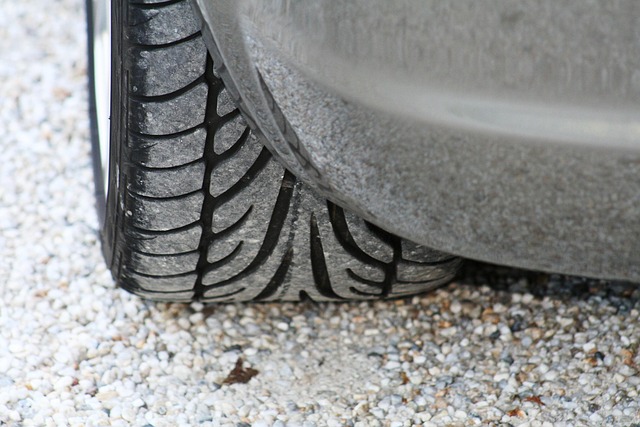Essential Insights on Yokohama Truck Tire Expense Trends
Yokohama truck tires have long been a staple in the commercial transportation industry, known for their durability and performance. As fleet managers and owner-operators navigate the complex world of tire expenses, understanding the current trends in Yokohama truck tire pricing is crucial for making informed decisions. This article delves into the factors influencing Yokohama truck tire costs, common models and their price points, and strategies for maximizing value when purchasing these essential components for commercial vehicles.

What are the typical price ranges for Yokohama truck tires?
Understanding Yokohama truck tire price ranges is essential for budgeting and fleet management. Yokohama offers a wide variety of truck tires, with prices varying significantly based on the specific model, size, and application. Generally, Yokohama truck tires can range from approximately $300 to $800 per tire for standard sizes and models. However, specialized tires for specific applications or larger sizes can exceed $1,000 per tire.
For instance, a common steer tire like the Yokohama 101ZL might fall in the $400 to $600 range, while a drive tire such as the Yokohama 712L could be priced between $450 and $700. Trailer tires, which typically see less wear, may be slightly less expensive, with models like the Yokohama RY407 ranging from $300 to $500.
What factors affect Yokohama truck tire price points?
Several key factors influence the price points of Yokohama truck tires. Understanding these can help buyers anticipate costs and make more informed purchasing decisions:
-
Tire size and application: Larger tires and those designed for specific applications (e.g., off-road or severe service) tend to be more expensive.
-
Tread design and compound: Tires with advanced tread patterns or specialized rubber compounds for improved fuel efficiency or wear resistance often command higher prices.
-
Market conditions: Raw material costs, supply chain issues, and overall demand can cause fluctuations in tire prices.
-
Technology integration: Tires equipped with sensors for tire pressure monitoring systems (TPMS) or other smart features may cost more.
-
Warranty and service agreements: Extended warranties or service packages can affect the overall price of the tire.
How do common Yokohama truck tire models compare in price?
To provide a clearer picture of Yokohama truck tire pricing, let’s compare some common models across different applications:
| Tire Model | Application | Size | Estimated Price Range |
|---|---|---|---|
| 101ZL | Steer | 295/75R22.5 | $450 - $600 |
| 712L | Drive | 11R22.5 | $500 - $700 |
| RY407 | Trailer | 11R22.5 | $350 - $500 |
| 902L | All-Position | 315/80R22.5 | $600 - $800 |
| MY507 | Wide Base | 445/50R22.5 | $800 - $1,000 |
Prices, rates, or cost estimates mentioned in this article are based on the latest available information but may change over time. Independent research is advised before making financial decisions.
It’s important to note that these prices are estimates and can vary based on factors such as purchase volume, location, and current market conditions. Additionally, prices for specialized or less common sizes may fall outside these ranges.
What strategies can maximize value when purchasing Yokohama truck tires?
While Yokohama truck tires represent a significant investment, there are several strategies fleet managers and owner-operators can employ to maximize value:
-
Conduct regular tire maintenance: Proper inflation, alignment, and rotation can significantly extend tire life, reducing the frequency of replacements.
-
Consider retreading: Yokohama offers retreading options for many of its truck tire models, which can be a cost-effective alternative to purchasing new tires.
-
Analyze total cost of ownership: Look beyond the initial purchase price and consider factors like fuel efficiency, tread life, and retreadability when assessing the long-term value of a tire.
-
Participate in fleet programs: Yokohama offers fleet programs that may provide discounts, extended warranties, or other benefits for high-volume purchasers.
-
Time purchases strategically: Some tire dealers offer seasonal promotions or discounts for bulk purchases. Planning tire replacements around these events can lead to savings.
-
Invest in tire pressure monitoring systems: While initially more expensive, TPMS can help maintain optimal tire pressure, improving fuel efficiency and tire longevity.
By implementing these strategies, fleet managers and owner-operators can optimize their Yokohama truck tire expenses while maintaining the performance and safety standards required for commercial operations.
In conclusion, understanding Yokohama truck tire expense trends involves considering various factors, from initial pricing to long-term value. By staying informed about price ranges, factors affecting costs, and strategies for maximizing value, those in the trucking industry can make more cost-effective decisions regarding their tire investments. As with any significant business expense, it’s crucial to regularly review and adapt tire purchasing strategies to align with current market conditions and organizational needs.




